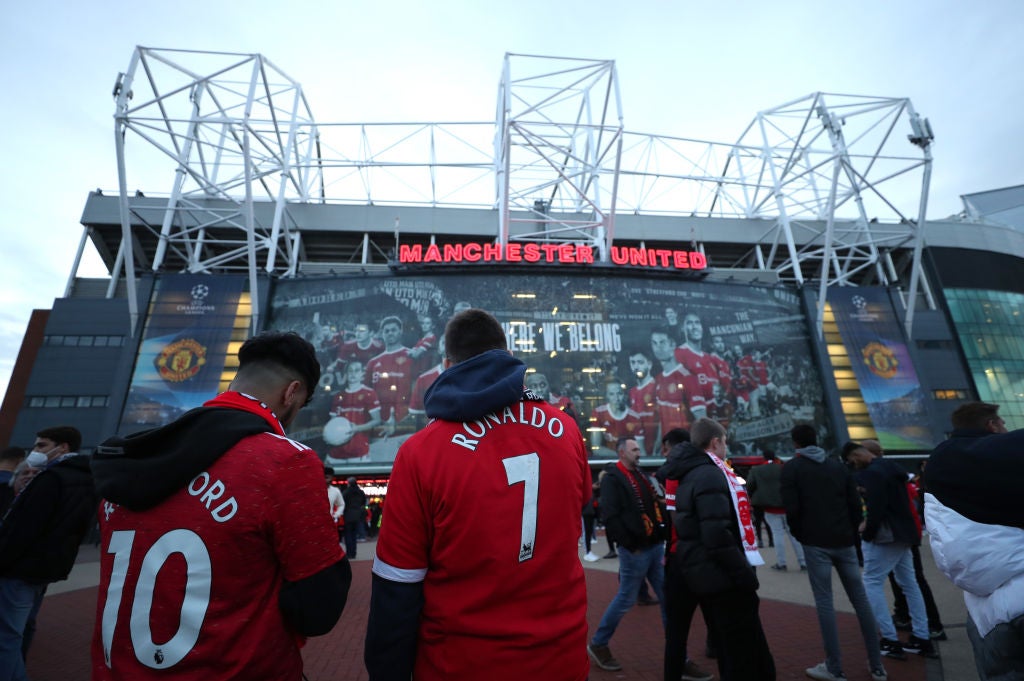Distant memories of fortress Old Trafford illustrate depth of Man United decline
The Red Devils aim to compete among the top sides again but putting their own house in order has to be a priority before thoughts of overhauling others come to mind

It might still be called the Theatre of Dreams by locals and broadcasters alike, keen to talk up another big game and yet another turning point in Manchester United’s meandering, confusing season, but there’s an uncomfortable home truth growing larger by the month.
A literal home truth, in this case: Old Trafford is far from a fortress these days. It’s not a place teams tend to fear. More regularly of late, it has been a sounding board of discontent, a map of malaise and a representation of greater issues within the club.
United are fast-approaching a fourth consecutive season in which they have failed to win more than ten Premier League matches on home soil.
As they prepare to host West Ham United on Saturday afternoon, the Hammers three places and two points above them in the table having played a game more, Man United have tasted victory in precisely half of their top-flight encounters at Old Trafford this season – just five occasions. They have suffered almost as many defeats there and only one of the wins have come against a team in the top half of the league.
There isn’t too much reason to suggest results are set for an immediate improvement.
Following on from the embarrassingly one-sided defeats to Liverpool and Man City across autumn, United beat Arsenal, Crystal Palace and Burnley at home in December – but followed that up by being deservedly beaten by Wolves. Of the nine remaining home games, West Ham, Tottenham and Chelsea are all ahead of United in the table. Leicester and Brighton are only a couple of places below them. They also exited the Carabao Cup on home soil, at the hands of the same opponents they face this weekend.
The thorny issue of being erratic at best at Old Trafford is one which goes back several seasons now.
Last term United finished second, and were unbeaten away from home, but in their own back yard they won fewer than half their home matches and just 54 per cent of available points. Only four Premier League teams conceded more in their own stadium than Ole Gunnar Solskjaer’s team did.
For both 2018/19 and 2019/20 it was 10 wins from 19, at the ground which holds more fans than any other in the country – albeit not all the games in that second campaign had supporters inside.
By way of contrast, the 17/18 season under Jose Mourinho saw United win 15 of 19 and concede only nine goals, en route to finishing as runners-up amid criticisms of negative style and the manager’s own assertions that the league placing ranked among his finest “triumphs”. Meanwhile on a broader scale, with the exception of United last year, 15 is the fewest number of home wins that any team has needed for a top-two finish in the past six seasons – since the aberration of 15/16 when Leicester won the league.
The run of seven years Sir Alex Ferguson had toward the end of his time as boss – 06/07 to 12/13, with five titles therein – saw them win 15, 17, 16, 18 and 16 times at home when they were champions, and 16 and 15 when they weren’t.
It was formidable, relentless consistency on home soil which built the foundations of success and at times seemed to beat teams before they even kicked off – and Premier League football has, as a whole at the top end, become even more unforgiving since then.
Problems at home are not restricted to just on the pitch, though, and that’s perhaps indicative of why United, the team, are not living up to expectations of United, the club.
They are in need of direction and clarity. What type of side do they want to be? Who is capable of making the decisions to take them there? A new chief executive is in place, Richard Arnold in the hot seat as of February, though it appears initially unlikely that he’ll have as much of a hands-on role on football matters as Ed Woodward did. A new first-team manager is still to be determined past May, the playing staff needs an enormous sorting and – incorporating both those unresolved issues – the club’s transfer approach is at best still open to judgement, at worst still being held back by mistakes of the last few years. Even Old Trafford itself is in need of regeneration, but the process will be a lengthy one.
All these factors speak of a club, a business, an organisation, who must sort out problems at home – in every regard – before worrying about the greater scope of trophies and success.
Back to on-pitch matters, consider the jump in pure numbers: United must go from 10 home wins a season to 15 just to be in the conversation for the top two – that’s a 50 per cent improvement in winning Old Trafford fixtures. Just to be relevant when it comes to title talk, not to be favourites.
The size of the task still ahead is a daunting, enormous one. Whether Ralf Rangnick, the United manager, or someone else entirely is at the helm for it, four years of mediocrity on a team’s own patch is a lot to unravel and overcome, and is unlikely to be turned around overnight.
Subscribe to Independent Premium to bookmark this article
Want to bookmark your favourite articles and stories to read or reference later? Start your Independent Premium subscription today.

Join our commenting forum
Join thought-provoking conversations, follow other Independent readers and see their replies